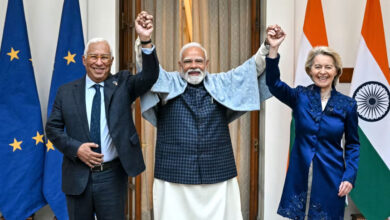Egypt’s government has ruled out the possibility of ceding public assets and companies in return for debt relief.
Minister of Planning and International Cooperation Faiza Abul Naga told Al-Masry Al-Youm that the government only engages in development projects in return for debt forgiveness. She denied that the EU will take over government-run assets and companies in return for canceling debt.
ِAbul Naga revealed that the US administration sent Egypt a detailed report of development projects to be funded by US-forgiven debts, which amount to US$1 billion.
Meanwhile, a former general manager at the Central Bank of Egypt, Samir Radwan, said he sent a memo to Prime Minister Essam Sharaf requesting the formation of a panel, which would include the ministers of finance and social solidarity, to determine the results of debt swaps.
Radwan described debt swaps as the “most dangerous form of privatization,” even if the International Monetary Fund and the World Bank consider them the best method. He said it involves relinquishing state-owned banks, firms, factories, and hotels, as a price for debt relief.
According to Radwan, debt swaps lead to bankruptcy and pave the way for economic dependency.
He said that in discussions with Egypt's Ministry of Finance, Spain, representing the EU, had discussed exchanging debts for ownership of public assets following the 25 January revolution.
He said this included transferring the ownership of local assets to foreign creditors, and noted that Hosni Mubarak's government failed to reveal this fact, only declaring its ability to secure debt relief.
According to a March report by the Central Bank of Egypt, the country’s foreign debts stand at LE35 billion.
Translated from the Arabic Edition




